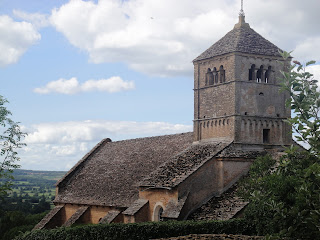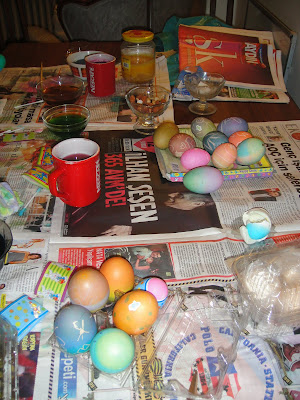My first encounter with Taize prayer was in college, when I was contacted by a local church to provide music for a "Taize prayer service" one evening. It was unlike anything I'd ever experienced: a 30-minute prayer service consisting of several short songs that were each repeated seven or eight times, a couple of brief Scripture readings, and most jarring, a 10-minute period of silence for contemplation and prayer. I had never before sat in a group of people during an organized activity with literally nothing happening. It was awkward confronting absolute silence when I was so used to a life always buzzing with activity and stimulation.
But I found myself drawn to the simple beauty of the music. (If you haven't heard any Taize songs, I highly recommend checking it out: some of my favorites are here, here, here, here...ok I'll stop now.) My curiosity had been piqued, and I did some research later to find out that this prayer service was modeled on that of a monastic community in the farmlands of Burgundy, France. Their website explained the ideas behind the format of the prayer: drawing back from our human tendency to complicate life and learning to find God in simplicity. Resting in His presence and giving ourselves a chance to shut off "the turmoil of our thoughts" so that we can hear Him speak. I also learned that people under the age of 30 are invited to spend a week at Taize, participating in the community life and having lots of empty, unscheduled time for prayer and Bible study.
It was a fascinating concept, worlds away from my church experience of flashing Power Point animations, constant background music, and calls from the pulpit to build up my faith by adding more action and Christ-centered activity to my life. Taize was officially on my bucket list of places to visit.
So when I was contemplating summer destinations, facing a tough work schedule and recognizing that spiritual isolation is not a healthy situation, it seemed natural to head to Taize for a week.
 |
| Lighting candles during evening prayer |
 | |
| The village of Taize |
Taize really is in the middle of nowhere. From Paris I took a high-speed train that dropped me off in the pouring rain at a tiny country station surrounded by other twenty-something Europeans with backpacks who all seemed to be waiting for the same bus as me. A thirty minute bus ride brought us to the Taize community, where we were immediately hustled into the church for evening prayer. About five thousand people crammed into the church, a large open space with no chairs or pews. People of all ages sat or knelt on the floor.
Later that evening the newcomers were given an introduction and led to our accommodations- campsites for those who had brought tents and barracks for the tentless like me. We were given work assignments (I joined the choir) and locations for morning Bible studies.
 |
| Lessons in minimalism- meals were less than stellar, but we had fun eating on benches together. |
 |
| Church at a nearby village |
 |
| Mealtime queues provide an excellent opportunity to make new friends. |
I spent my afternoons having long conversations with new friends, or walking around the countryside to the nearby villages. The community includes a forested area with a lake, where people go to walk, sit and pray, or read. Taize is a popular European youth group destination, so the place was packed with teenagers, many of whom were eager to talk to me when they learned I'm from the United States. Of the five thousand at Taize the week I was there, there were about 15 Americans, so we were a bit of a novelty.
 |
| The surrounding landscape reminds me somewhat of Missouri- no wonder the French settled around St. Louis! |
Newly refreshed from Taize, I set my sights on the Dalmatian coast of Croatia for the next ten days of my vacation. But that is a story for another time. Cheers for now...













